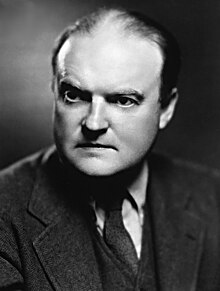Of those, in his post #665 Kalamata regales us with quotes from three.
Looking those three up, we can find basic information on them:

- James Randall, "Constitutional Problems Under Lincoln" -- 1926 (Revisionist School)
- "Randall argued in Civil War and Reconstruction that the war "could have been avoided, supposing of course that something more of statesmanship, moderation, and understanding, and something less of professional patrioteering, slogan-making, face-saving, political clamoring, and propaganda, had existed on both sides."
But such had not been the case.
In Randall's view, extremists in both sections emerged as villains, the abolitionist radicals worst of all.
"Reforming zeal, in those individual leaders in whom it became most vociferous and vocal, was often unrelieved by wisdom, toleration, tact, and the sense of human values.... It was a major cause of the conflict itself."
That is, minority elements inflamed sectional passions to a point where compromise, which might have been brought about by sensible and responsible men, became impossible. "
- Clinton Rossiter, "Constitutional Dictatorship: Crisis Government in the Modern Democracies" -- 1948 (Revisionist)
- "In particular, following the events of 9/11, Rossiter's first book, the 1948 Constitutional Dictatorship: Crisis Government in the Modern Democracies (reissued in 1963 with a new preface), was reprinted for the first time in nearly forty years.
In that germinal study, Rossiter argued that constitutional democracies had to learn the lesson of the Roman Republic to adopt and use emergency procedures that would empower governments to deal with crises beyond the ordinary capacities of democratic constitutional governance but to ensure that such crisis procedures were themselves subject to constitutional controls and codified temporal limits." - Edmund Wilson, "Patriotic Gore: studies in the literature of the American Civil War" -- 1962 (literature, Lost Causer)

- "The book begins with a controversial 23-page introduction in which Wilson presents his own understanding of the Civil War -- and of all modern wars -- as well as of Abraham Lincoln.
Even though he was born and raised in New Jersey, Wilson saw the Civil War as an imperialistic war of conquest on the part of the North, hypocritically justified by the "rabble-rousing moral issue" of slavery.
In his view, Lincoln was an "uncompromising dictator" comparable to Lenin and Bismarck."
Beginning with Clinton Rossiter, who in 1948 argued positively that "Constitutional Democracies" must in emergencies act like the ancient Roman Republic and appoint dictators to rule temporarily.
He cites Lincoln as his example.
The problem for both Rossiter and Kalamata is that Lincoln's actions were not those of a "dictator", but rather were built into the President's job description by the Constitution (i.e., habeas corpus), Federal Laws (i.e, 1792 Militia Act, 1807 Insurrection Act) and Founders' historical precedents against rebellion, secession & treason, etc.
1926 classical Revisionist (meaning blames "hot heads" on both sides) James Randall gets quoted by Kalamata complaining that Lincoln refused in 1861 to even recognize or negotiate with Jefferson Davis' Confederate emissaries.
Even at Hampton Roads in 1865, Lincoln offered Confederates only surrender terms, never independence.
But that Randall quote does not mention Democrat President Buchanan, who also refused to recognize or negotiate with Confederate envoys.
And, it doesn't report that Lincoln believed Congress is constitutionally assigned disposition of Federal properties.
Indeed, this is yet another example where all those who claim "Lincoln the dictator" ignored the Constitution, in this case they want Lincoln to have ignored Congress's Constitutional authority over Federal properties.
 Finally, Kalamata quotes from Edmund Wilson's (d. 1972) 1962 Lost Cause literary compilation.
Finally, Kalamata quotes from Edmund Wilson's (d. 1972) 1962 Lost Cause literary compilation.
Edmund Wilson was a Big Deal in the world of literature -- editor of Vogue and New Republic, a prolific author and critic of other writers:
- On Hemmingway: "But for reasons I cannot attempt to explain, something dreadful seems to happen to Hemingway as soon as he begins to write in the first person."[8] "
- On H. L. Mencken: "The striking thing about Mencken's mind is its ruthlessness and rigidity... Though one of the fairest of critics, he is the least pliant..."[14]
- On Tolkien: The Lord of the Rings, which Wilson referred to as "juvenile trash", saying "Dr. Tolkien has little skill at narrative and no instinct for literary form."[5]
Wilson was big into Marx & Freud, an anti-Cold Warrior, he was fined by the IRS and rewarded by President Kennedy.
Wilson's book, Patriotic Gore:
- "Wilson almost entirely ignores writers who are African-American, with Forten as an exception, notably lacking mention of Frederick Douglass.[2]
The book's analysis of the Civil War borrows heavily from now-discredited Lost Cause ideology, using "language no diehard Lost Cause advocate of the turn of the 20th century nor neo-Confederate of the early 21st could improve upon," and that "Wilson simply took no interest in black literature, and seemed completely unaware of slave narratives" reveals almost as "much about Wilson’s own moral blindness [as] about the state of knowledge in elite white circles of African-American history and letters in the 1950s and even early 1960s."[3] "
Wilson was a leftwing racist.